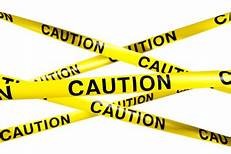Employees have expectations of their leaders. So does the business. But, there’s a danger when we expect something from leaders and automatically assume it will be fulfilled. It can lead to performance stagnation or decline, anxiety, disengagement, and even higher turnover. Are expectations of leaders in your organization -- reasonable or unreasonable? What are you actively doing to manage these expectations?
Expectations have a powerful impact on trust and respect. And, trust impacts performance. For example, in PwC’s 2016 global CEO survey, ‘55% of CEOs thought that a lack of trust was a threat to their organization’s growth.’ Ken Blanchard Companies’ research found that ‘45% of employees said lack of trust in leadership was the biggest issue in work performance.’
Some of you might be thinking ‘but we already have values, leadership competencies, and job descriptions. Isn’t that enough?’ Maybe – maybe not.
Expectations are simply beliefs that a certain outcome or event will happen (we apply assumptions). But, expectations are not agreement. That only takes place with consistent execution of an aligned set of repeatable processes that communicate, teach, and reinforce desired outcomes and behaviors.
Is your current process for managing leadership expectation effective and efficient in:
- Providing straightforwardness and transparency to both leaders and employees?
- Driving more consistent use of standard methods & techniques?
- Providing specifics on timing, frequency, duration, processes to use?
- Creating more consistency regardless of location, experience level, personalities, or level of supervision?
- Driving higher levels of accountability?
- Sustaining momentum regardless of leadership changes?
- Improving both performance and development of leaders?
Understanding, creating, and managing expectations is critical for sustained success. Pushing leaders to achieve their best can lead to very positive results. But, unrealistic expectations can backfire and be dangerous. Is it time for your organization to do a reality check of how it is managing leadership expectations?
One final thought. It’s widely acknowledged that leadership has a significant impact on performance and competitiveness. Research has found organizations with the highest quality leaders were 13 times more likely to outperform their competition in bottom-line metrics. In addition, as much as 35% of the variability in employee discretionary performance is a result of managerial styles and behaviors. When it comes to managing leadership expectations, let’s be respectfully relentless and relentlessly respectful. It will pay BIG dividends.
Interested in Leadership Expectation best practices (beliefs, plans, and execution)? If so let’s connect at [email protected] or at 309.634.9137 USA


 RSS Feed
RSS Feed


